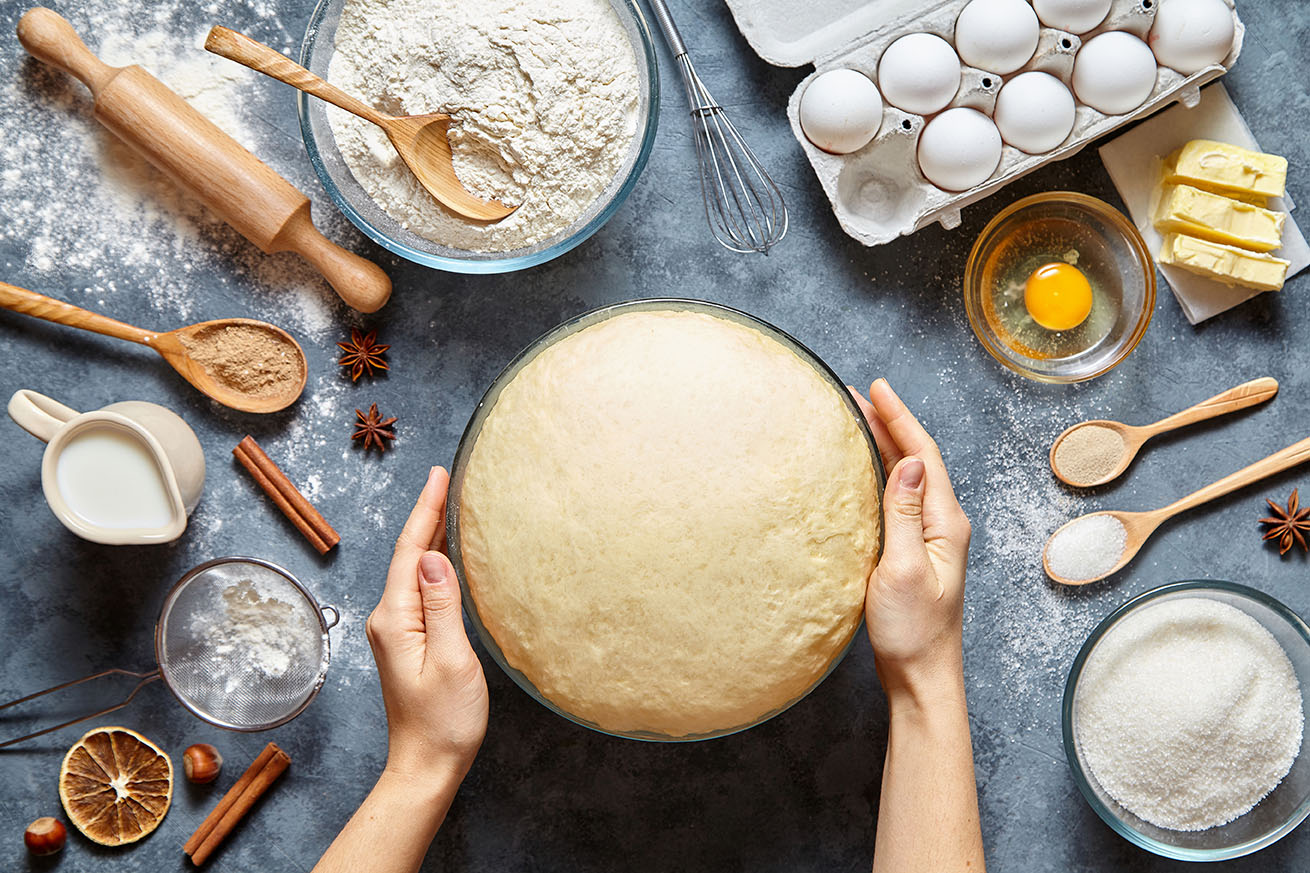
baking
Definition
Baking is a method of cooking that uses dry heat, typically in an oven. Baking is used to cook a variety of foods, including breads, cakes, pastries, and pies.
The science of baking is based on the principles of heat transfer and chemistry. When food is baked, the heat causes the water molecules in the food to evaporate. This evaporation creates steam, which cooks the food from the inside out.
The chemical reactions that occur during baking are also important. These reactions help to give baked goods their flavour, texture, and colour. For example, the Maillard reaction is a chemical reaction that occurs between amino acids and sugars when they are heated. This reaction gives baked goods their browned colour and characteristic flavour.
Baking is a complex process that involves a variety of factors, including the type of food being baked, the temperature of the oven, and the length of time the food is baked. However, by understanding the science of baking, you can learn to bake delicious and successful baked goods.
How can the word be used?
The smell of baking cookies filled the house.

Different forms of the word
Noun: baking (the process of cooking food by dry heat in an oven).
Adjective: baking (of or relating to the process of baking).
Adverb: bakingly (in a way that is related to baking).
Verb: bake (to cook food by dry heat in an oven).
Gerund: baking.
Participle: baked.
Etymology
The word "baking" comes from the Old English word "bacan", which means "to dry or cook by exposing to heat". The word "bacan" is related to the Old Norse word "baka", which also means "to bake".
Question
What ingredients are typically used when baking?
AQA Science Exam Question and Answer
Question:
Explain the chemical process involved in baking and how it transforms raw ingredients into cooked food. Provide an example of a chemical reaction that occurs during baking.
Answer:
Baking is a cooking process that involves the application of dry heat to food items, typically in an oven. During baking, several chemical reactions take place. One essential reaction is the Maillard reaction, where proteins and carbohydrates in the food react under heat, resulting in browning and the development of flavours and aromas. For example, when bread is baked, the Maillard reaction occurs between the proteins and sugars in the dough, giving the crust its golden-brown colour and contributing to the distinctive taste and smell of freshly baked bread. Additionally, baking can also involve leavening agents like baking powder or yeast, which release carbon dioxide gas during baking, causing the dough or batter to rise and creating a light and airy texture in the finished product.